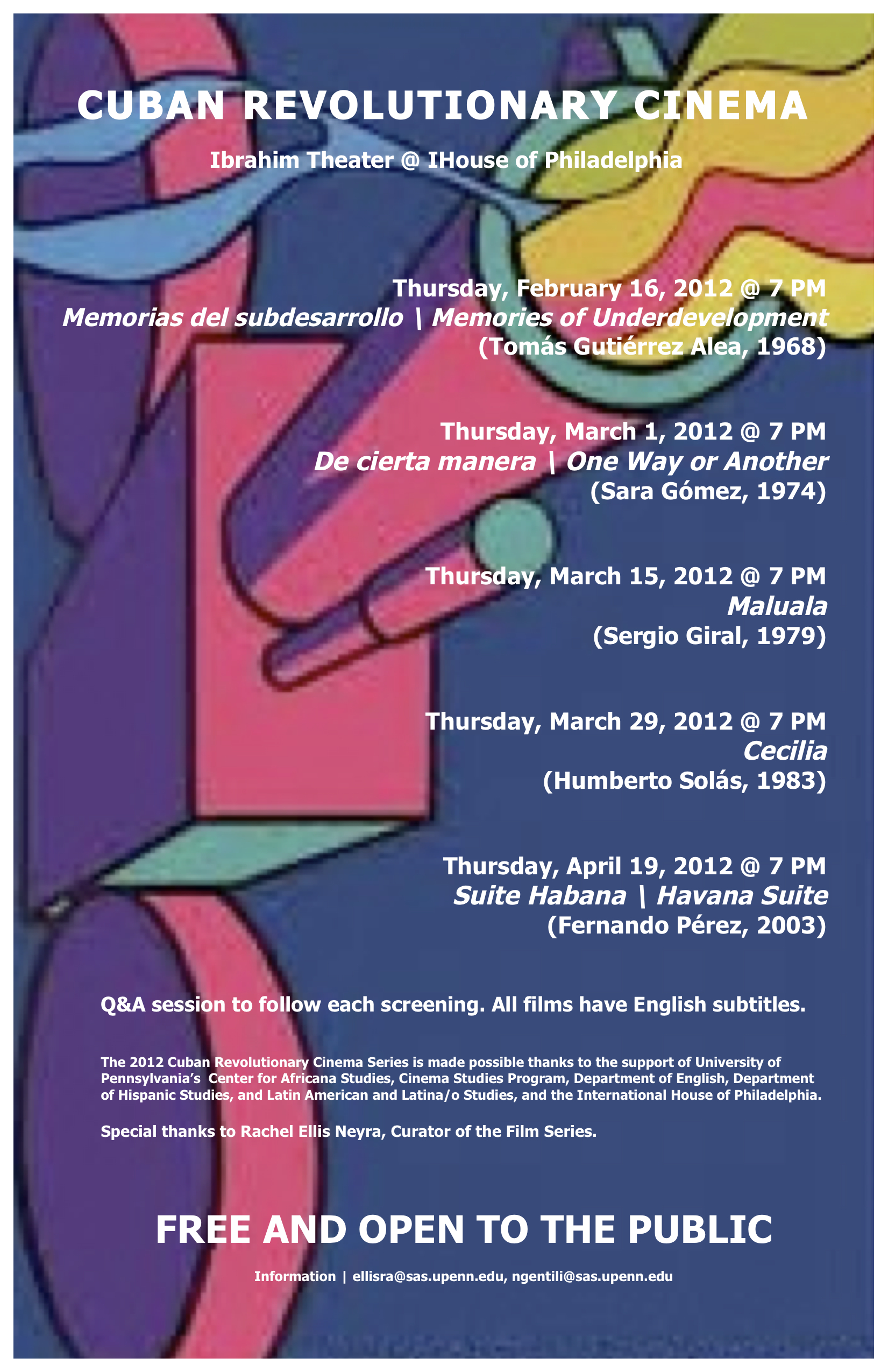Event
Maluala
(Sergio Giral, 1979)
Set in a slightly ambiguous moment of either the late 18th or early 19th century Cuba, Sergio Giral’s film Maluala unambiguously presents the palenques of Cuba, historical communities of runaway slaves (cimarrones) hidden by the mountains of the Sierra Maestra in eastern Cuba and hunted by the Spaniards. Part of Giral’s trio of films including El otro Francisco and Rancheador (although Gutiérrez Alea’s La última cena is certainly related to these works), in Maluala one distinctly encounters the sacred rituals of the cimarrones, trading amongst each other, and with rogues and pirates who preyed along the Caribbean coastlines while averting the Spanish galleons. The action begins with the Spaniards’ response to a demand by palenque chiefs not only for freedom but also for land, using agents of the Church to argue that the chiefs will be “free” if they come down from the mountains with their people “to work.” Several palenque chiefs respond and choose the notion of freedom being sold to them, thereby re-entering their people into slavery. What is more visually alarming than this, or even than when one of the chiefs, Coba, of the palenque Bumba, leaps into suicide over submission, is the insistence of the chief of Maluala that freedom without land is not freedom. The language that passes between the Spaniards and blacks amounts to the rejection of European notions of property, which complement its notion of slavery, and evokes the words of Frantz Fanon and decolonization, and the Afro-Caribbean and Afro-American notions of the importance of place and language to the persistence of a community.
Maluala will be introduced by Enrique Sacerio-Garí, Dorothy Nepper Marshall Professor of Hispanic and Hispanic-American Studies at Bryn Mawr College. Prof. Sacerio-Garí, literary scholar and poet, has published widely on Latin American Literature, with essays on Borges, García Márquez and Brazilian concrete poetry, Cuban Cinema and Culture, and has translated Neruda’s Ode to Typography. One of his books of poetry, Poemas interreales, was published in Havana in 2004.
The 2012 Cuban Revolutionary Cinema Series is made possible thanks to the support of University of Pennsylvania's Center for Africana Studies, Cinema Studies Program, Department of English, Department of Hispanic Studies, and Latin American and Latina/o Studies, and the International House of Philadelphia.
Special thanks: Rachel Ellis Neyra, Curator of the Film Series.


